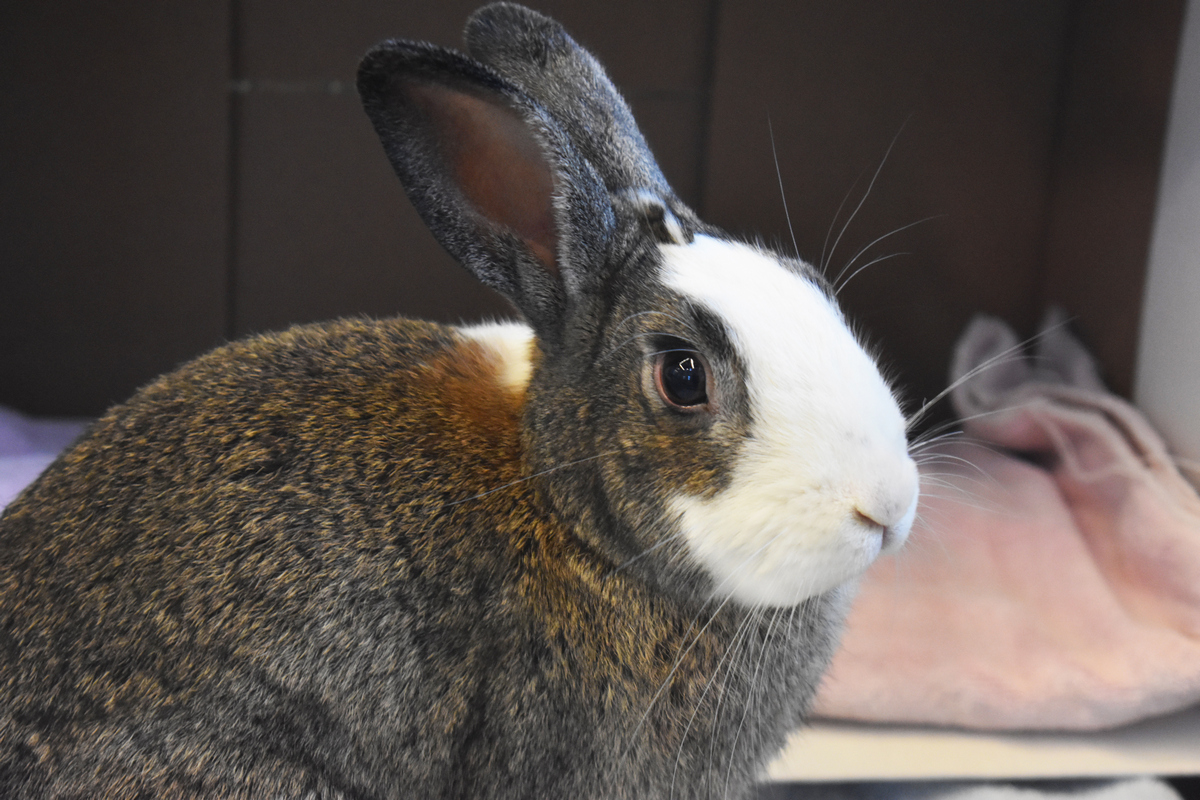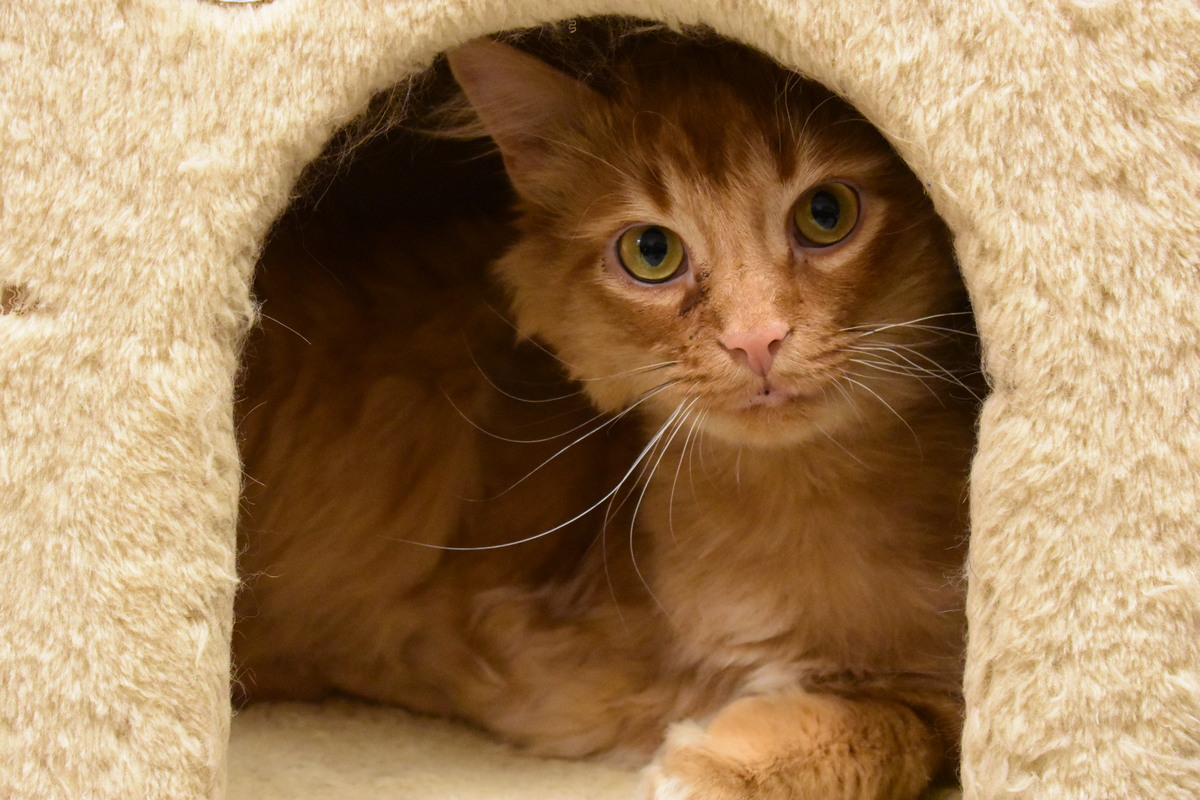
Did you know that the third week in March was #NationalPoisionPreventionWeek?
You may or may not know, there are several pet poisons and toxins that can be found in the average household. Household pet toxins can be divided into four major categories: food, human medications, plans, and household products.
I’d like to start by talking about one pet poison that is particularly sad and frustrating to treat as a veterinarian: over the counter flea treatments containing pyrethrin. These are the cheaper options at the pet store for flea treatment, including both spot-on and shampoo formulations. Many products containing this insecticide are labeled for cats and even have pictures of cats on the packaging. However, this insecticide is particularly dangerous to our feline friends and can cause tremors, seizures, and even death. Without quick veterinary intervention, pyrethrins will kill your cat. I personally have treated cats that I was not able to stop from seizing after being treated with this cheap flea treatment. These cats had to be euthanized, and it was devastating to both the owner and the veterinary staff. Remember, only use flea treatments/preventatives recommended by your veterinarian.
Foods
Humans eat a lot of food that includes additives which are not safe for our pets. For instance, grapes and raisins can cause kidney failure in dogs, and we still do not know why this happens. Onions and garlic can cause anemia (low red blood cell count) especially in cats, but also in dogs. In dogs, macadamia nuts can cause depression, vomiting, and tremors in dogs. Overdosing on very salty foods such as chips and pretzels, can cause vomiting, tremors, seizures, and even death due to sodium poisoning. Citrus fruits, including the stems, leaves, peels, and seeds, can cause gastrointestinal irritation and central nervous system depression due to the citrus oil present.

In the past few years, the artificial sweetener xylitol has become a major source of pet poisoning. Xylitol is in chewing gum, breath mints, and even some peanut butter brands. Make sure to carefully read the label of peanut butter before feeding it to your dog as a treat. Keep gum and breath mints away from pets. The xylitol initially causes a large insulin release, which leads to hypoglycemia, which causes the pet to become lethargic, uncoordinated, and vomiting. Signs can progress to seizures, liver disease, and even liver failure. Contact your veterinarian immediately if your pet accidently ingests any xylitol-containing products.
Other common food toxicities include chocolate and other caffeine-containing foods, which can cause vomiting, diarrhea, hyperactivity, excessive thirst and urination, tremors, and seizures. Chocolate toxicity is dose-dependent: the weight of your dog, the type of chocolate (baking and dark chocolates are worse than milk chocolate), and the amount he or she eats determines the level of toxicity and whether any intervention is needed.
There are also a few current food fads that can cause problems for your pet. Coconut in small amounts is ok for pets, but eating large amounts of coconut oil can cause gastrointestinal upset and diarrhea. Coconut water contains a high level of potassium that is too much for our pets – they shouldn’t be consuming this product. Another trend is feeding raw food to our dogs. Raw meat can have the bacteria Salmonella and E. coli, both of which can cause a severe diarrhea for both your pet and yourself. Pets can also choke on raw bones and splintered bone fragments can cause punctures along the gastrointestinal tract.
Medications
Over-the-counter and prescription medications designed for people should never be given to your pet unless prescribed by a veterinarian. Aspirin, Tylenol, and ibuprofen can all cause serious and even fatal illness in both dogs and cats. If you think your pet is in pain, do not attempt to treat them on your own; veterinarians have pain management drugs that are safe for your pet and should always be consulted first. Large amounts of Pepto Bismol can also cause similar signs as aspirin toxicity, and should only be used under the direction of your veterinarian. Another dangerous drug for our pets that is safe in people is pseudoephedrine; many decongestants and cough suppressing medications can also contain pseudoephdrine and should not be given to your pet.
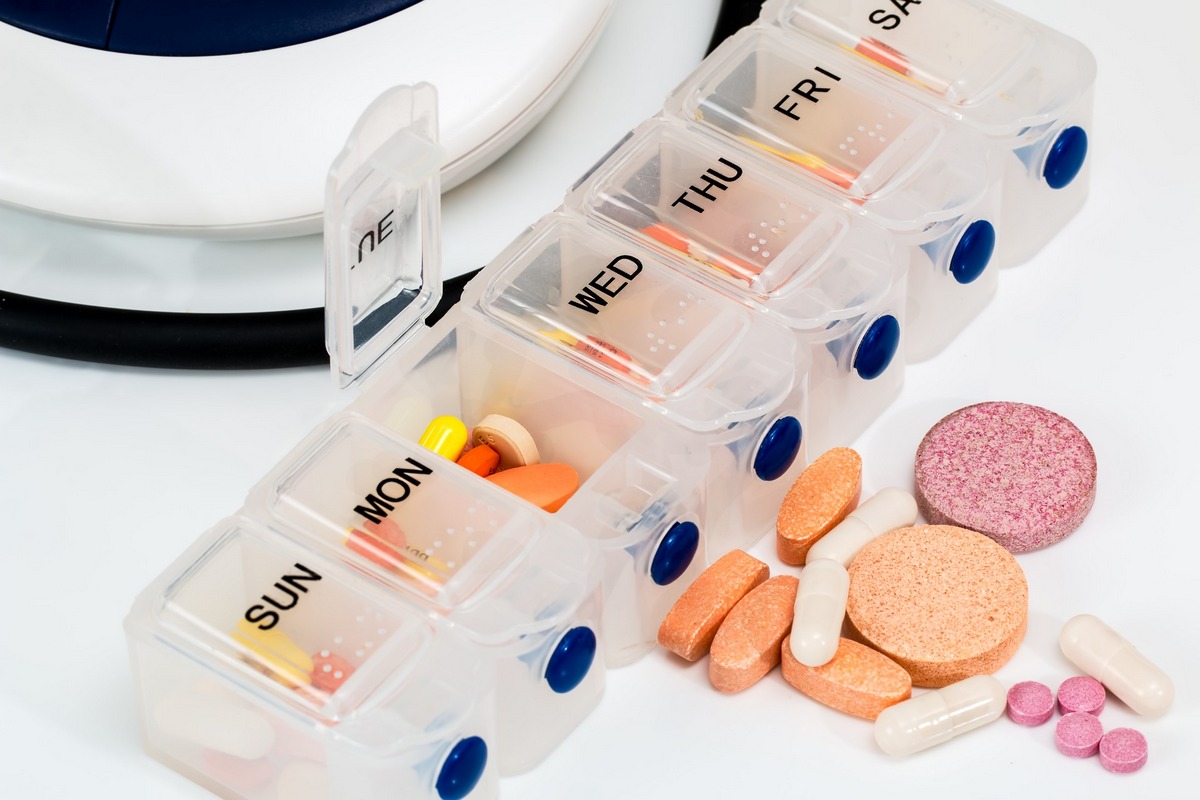
Medications used to treat ADHD contain amphetamines that can cause hyperactivity, tremors, seizures, and even death in pets. Nicotine and e-cigarette cartridges can be a source of poisoning, causing vomiting, diarrhea, depression, a high heart rate, low blood pressure, seizures, and respiratory failure. One e-cigarette liquid cartridge is enough to kill a dog. If you have these type of products in your home, make sure to store them out of the reach of your pets.
A final group of medications that can cause problems in our pets are those administered as topical creams. Poisonings by these drugs occur when pets accidently ingest the medication, both by licking it off of their owners and chewing the tube of medicine, as well as when people touch their pets while the cream is on their hands. Topical creams known to cause problems include: baclofen, flurbiprofen, diclofenac, ketamine, lidocaine, dibucaine, 5-fluorouracil, calcipotriene, and estrogen-containing creams. Wear gloves when apply the cream to your skin, and always wash your hands thoroughly before touching your pet.

Plants
There are many plants that can be poisonous to our pets. The ASPCA website has an exhaustive list of these plants, and I recommend consulting their database with questions. With holidays like Easter just around the corner, I will make special mention of lilies. I strongly recommend not bringing lilies into the house at all if you have a cat. Lilies can cause kidney failure in cats, which is unfortunately deadly. They can become exposed both by chewing on the plant, and by grooming pollen off of their fur.
Household Products
Essential oils have become very popular recently, both in concentrated forms applied directly to the skin and in diffusers. We are still learning about which essential oils are safe for pets and which are dangerous. However, there is clear evidence that at least some essential oils can cause gastrointestinal illness, central nervous system depression, liver damage, and aspiration pneumonia in cats. The concentrated oils applied directly to the skin should not be used at all on cats; at least until we know precisely which oils are dangerous. Remember than many soaps and potpourri can also contain essential oils and can be a source of poisoning. Anything containing the essential oils should be kept out of reach of your pets in a secure place.
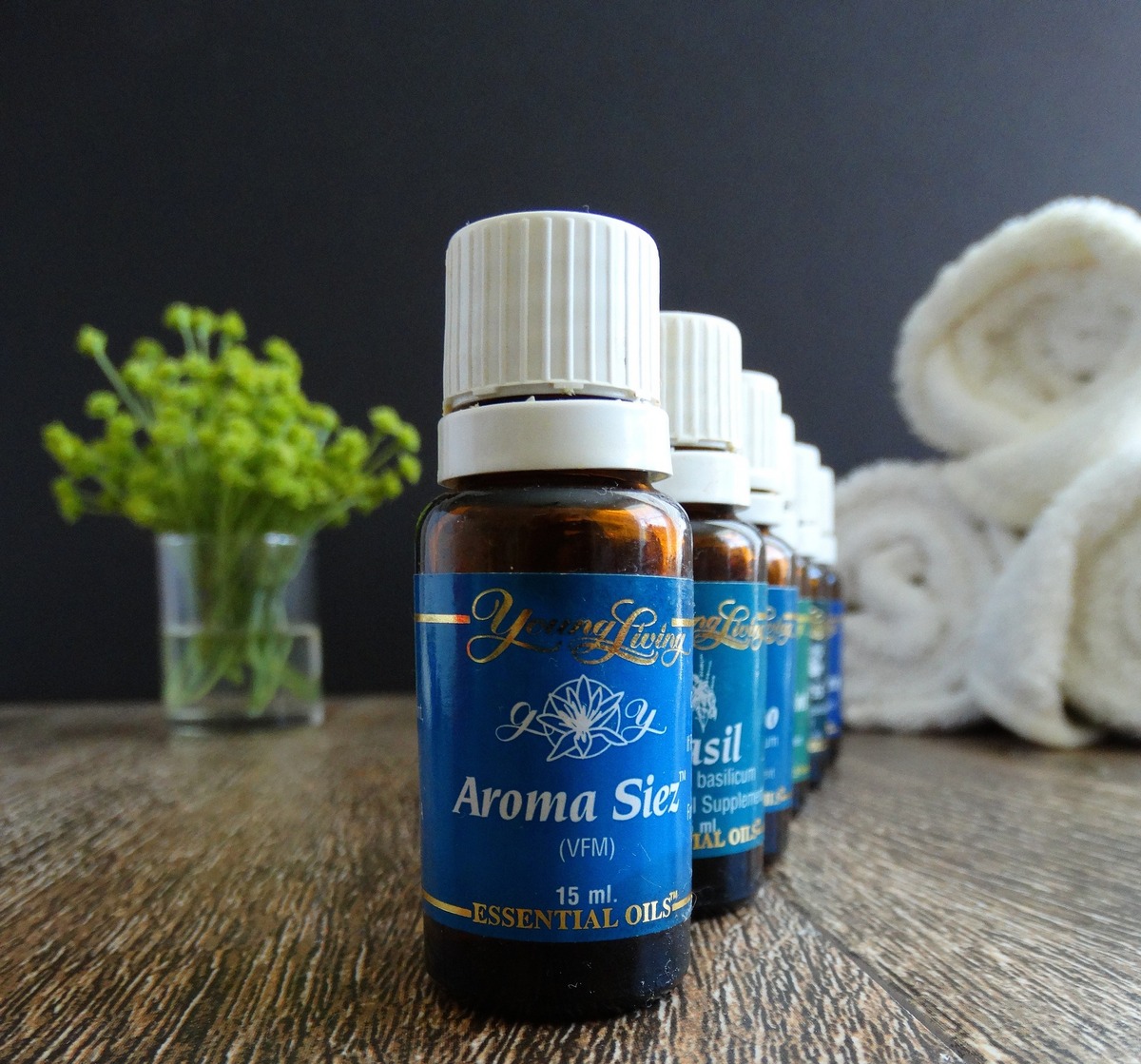
Detergent pods or packages are in the news lately, and, just as in people, the pods are dangerous to pets if consumed. They should be kept in a secure spot where your pet cannot reach them. Unused fabric softener sheets can also cause problems if ingested, including drooling, vomiting, ulcers in the mouth and along the esophagus, and fever. Additionally, the fabric sheet can cause an intestinal blockage, which requires emergency surgery to remove.
Rat poisons are a particularly dangerous product that some people keep in their homes and garages. These poisons work by preventing blood from clotting, causing internal bleeding. Pets can be exposed both by eating the bait directly, and by eating a mouse or rat that has ingested the poison. If your pet has ingested rodenticide, he or she needs to be seen by a veterinarian immediately. If it is early enough, and the rodenticide hasn’t been digested, your pet may only need vomiting induced and vitamin K supplementation; once the rodenticide has been absorbed into the system, hospitalization is required and often blood transfusions are needed to save the pets life. If you have pets in your house, I strongly recommend not using rodenticides on your property at all.
The ASPCA’s website is also a fantastic resource for all things related to pet poisons. Take a few minutes to check out aspca.org/pet-care/animal-poison-control! They also have a mobile app for quick consultation. If your pet has been exposed to a potential poison, call your veterinarian or the ASPCA Poison Control immediately (888-426-4435). Keep in mind, there is a $65 consultation fee when you call Poison Control (because you are paying for a veterinary toxicologist to consult on your pet’s case).
Stay safe, pets and people!
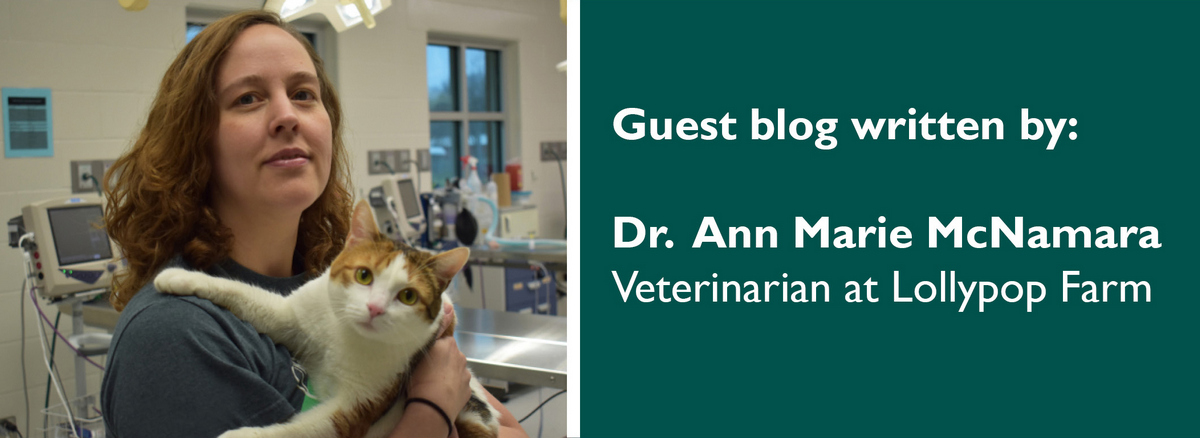
This guest blog was written by Dr. Ann Marie McNamara, Veterinarian at Lollypop Farm

